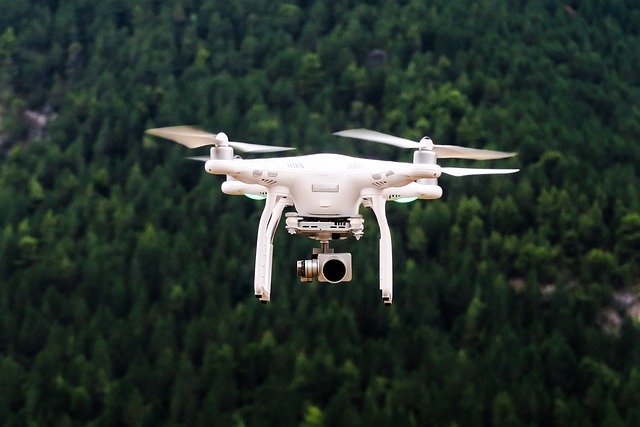Navigating Career Transitions with Mindfulness: A Path to Professional Fulfillment
In today's fast-paced professional world, career transitions have become increasingly common. As job markets evolve and personal aspirations shift, many individuals find themselves contemplating significant changes in their professional lives. This article explores the intersection of mindfulness and career transitions, offering a fresh perspective on how cultivating present-moment awareness can lead to more fulfilling and successful career pivots.

The Roots of Mindfulness in Career Development
Mindfulness, rooted in ancient Buddhist traditions, has found its way into various aspects of modern life, including the professional sphere. In the context of career development, mindfulness involves bringing a non-judgmental awareness to one’s thoughts, feelings, and experiences related to work and career aspirations. This practice can be traced back to the 1970s when Jon Kabat-Zinn introduced Mindfulness-Based Stress Reduction (MBSR) in clinical settings, which later expanded into workplace applications.
As the job market became more volatile and career paths less linear, the need for tools to navigate professional uncertainty grew. Mindfulness emerged as a powerful approach, offering individuals a way to stay grounded and make decisions aligned with their authentic selves amidst career turbulence. The integration of mindfulness into career development represents a shift from purely strategic planning to a more holistic approach that considers emotional well-being and personal fulfillment.
The Mindful Approach to Career Assessment
One of the key benefits of applying mindfulness to career transitions is the enhanced self-awareness it brings to the career assessment process. Traditional career assessments often focus on skills, interests, and personality traits. While these are important, a mindful approach adds depth by encouraging individuals to explore their values, passions, and sense of purpose with greater clarity.
Mindfulness practices such as meditation and journaling can help professionals uncover hidden aspirations and confront limiting beliefs that may be holding them back. By cultivating present-moment awareness, individuals can more accurately assess their current job satisfaction and identify areas for growth or change. This deeper level of self-reflection often leads to more authentic career choices that are sustainable in the long term.
Stress Management During Career Transitions
Career transitions are inherently stressful, often involving financial uncertainty, identity shifts, and the challenge of learning new skills. Mindfulness offers a powerful toolkit for managing this stress and maintaining emotional balance throughout the transition process. Research has shown that regular mindfulness practice can reduce cortisol levels, improve sleep quality, and enhance overall well-being.
For professionals in the midst of a career change, mindfulness techniques such as deep breathing exercises, body scans, and mindful walking can provide immediate stress relief. These practices help individuals stay centered and focused, even when faced with rejection or setbacks in their job search. By cultivating a non-reactive stance towards challenges, professionals can maintain resilience and persevere through the ups and downs of career transitions.
Enhancing Decision-Making Skills
One of the most critical aspects of successful career transitions is the ability to make sound decisions in the face of uncertainty. Mindfulness can significantly enhance decision-making skills by reducing cognitive biases and promoting clearer thinking. By practicing mindful awareness, professionals can become more attuned to their intuition and less swayed by external pressures or societal expectations.
Mindful decision-making in career transitions involves taking a step back from the constant stream of thoughts and worries to gain a broader perspective. This can be particularly helpful when weighing the pros and cons of different career options or deciding whether to accept a job offer. By approaching decisions with a calm and centered mind, professionals are more likely to make choices that align with their authentic goals and values.
Building Resilience and Adaptability
In today’s rapidly changing job market, resilience and adaptability are crucial skills for successful career transitions. Mindfulness practices can help cultivate these qualities by fostering a growth mindset and increasing emotional intelligence. Regular mindfulness meditation has been shown to strengthen the prefrontal cortex, the area of the brain responsible for executive functions such as planning, problem-solving, and emotional regulation.
By developing greater resilience through mindfulness, professionals can bounce back more quickly from setbacks and remain open to new opportunities. This adaptability is particularly valuable in career transitions, where the ability to pivot and learn new skills quickly can make the difference between success and stagnation. Mindful professionals are better equipped to embrace change and view challenges as opportunities for growth rather than insurmountable obstacles.
Implementing Mindfulness in Your Career Transition
Incorporating mindfulness into your career transition doesn’t require a complete lifestyle overhaul. Start small by dedicating a few minutes each day to mindful practices such as meditation or reflective journaling. Pay attention to your thoughts and feelings about your current job and potential career paths without judgment. As you become more comfortable with these practices, you can expand them to include mindful networking, where you focus on building genuine connections rather than just exchanging business cards.
Create a mindful job search routine by setting aside dedicated time for applications and networking, free from distractions. Before interviews, take a few minutes to center yourself with deep breathing exercises. This can help reduce anxiety and allow you to present your authentic self to potential employers. Remember that mindfulness is a skill that develops over time, so be patient with yourself as you integrate these practices into your career transition journey.
In conclusion, mindfulness offers a powerful and innovative approach to navigating career transitions. By cultivating present-moment awareness, professionals can make more authentic career choices, manage stress more effectively, and develop the resilience needed to thrive in today’s dynamic job market. As the world of work continues to evolve, the integration of mindfulness into career development strategies provides a valuable tool for achieving not just professional success, but also personal fulfillment and well-being.






